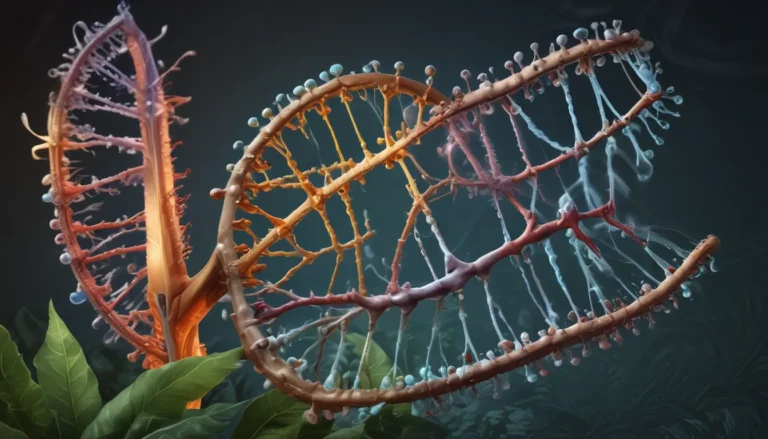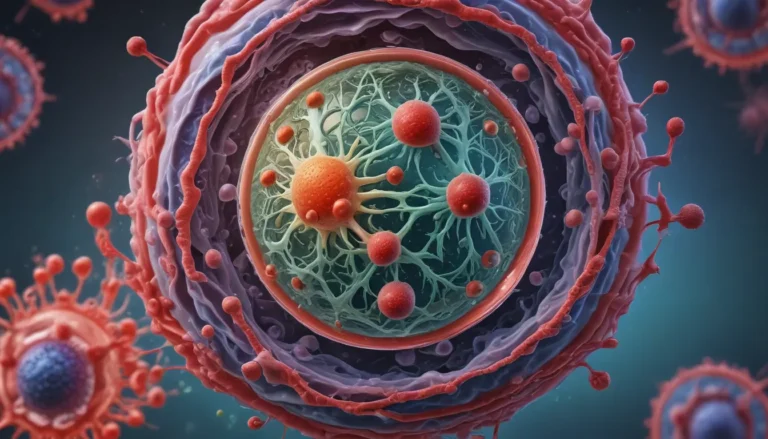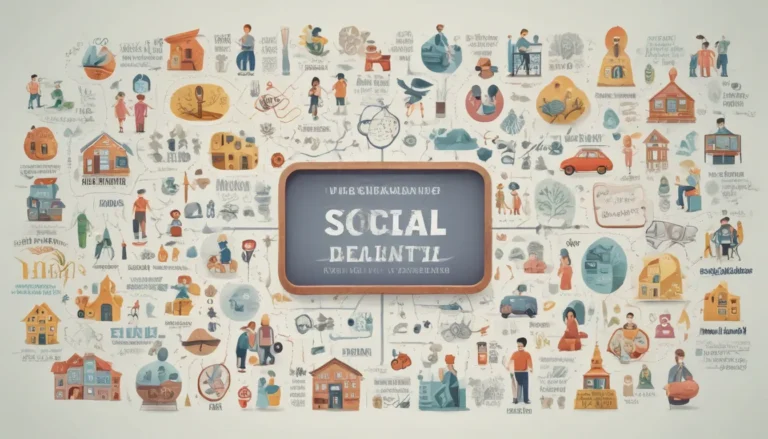A Note About Images: The images used in our articles are for illustration purposes only and may not exactly match the content. They are meant to engage readers, but the text should be relied upon for accurate information.
Welcome to the captivating world of heredity, where genetic information is passed down from generation to generation, shaping who we are and what we become. From the discovery of DNA to the intricate interplay of genes and the environment, heredity influences not only our physical traits but also our susceptibility to diseases and behaviors. Join us on an enlightening journey as we delve into 12 astounding facts that shed light on the mysteries of our genetic makeup and the captivating realm of genetics.
Exploring the Intricacies of Heredity
Heredity, the transmission of traits from parents to offspring, is a complex dance between genes and the environment, shaping our characteristics in fascinating ways. From ancient observations to modern gene therapy, the study of heredity reveals the intricate interplay between genetics and the environment in shaping life on Earth.
Unlocking Genetic Secrets: The Human Genome Project
The Human Genome Project, completed in 2003, was a groundbreaking scientific endeavor that sequenced and mapped the entire human genome. This monumental achievement revolutionized our understanding of heredity and paved the way for countless advancements in genetics.
DNA: The Blueprint of Life
Deoxyribonucleic acid, or DNA, serves as the carrier of hereditary information, containing the genetic instructions that determine our traits and characteristics. It is the fundamental blueprint passed down from generation to generation.
The Impact of Genes and Environment on Heredity
While genes play a significant role in determining our traits, the environment also plays a crucial role in how these traits are expressed. Understanding the interplay between nature and nurture is key to unraveling the complexities of heredity.
Inherited Diseases: Insights from Heredity
Many diseases, such as cystic fibrosis and sickle cell anemia, are inherited through genetic mutations. Understanding the principles of heredity is essential in developing effective treatments for these conditions.
Identical Twins: A Genetic Mirror
Identical twins, originating from a single fertilized egg, share the same genetic makeup and exhibit remarkable similarities in their physical characteristics. Their shared hereditary information offers valuable insights into the role of genes in shaping our traits.
Genetic Variation and Evolutionary Adaptation
Genetic variation within a population is essential for evolutionary adaptation and resilience to environmental changes. Diversity ensures the survival of the fittest by allowing individuals to adapt to challenges and thrive in their environments.
The Ancient Roots of Heredity
Ancient civilizations, such as the Egyptians and Greeks, observed and documented patterns of inherited traits in plants and animals, laying the groundwork for our modern understanding of heredity. Their insights continue to inform scientific discoveries today.
Gene Therapy: Transforming Heredity
Gene therapy, a rapidly advancing field, holds the potential to treat genetic disorders by introducing functional genes into the body. This innovative approach offers hope for correcting hereditary traits and revolutionizing medical treatments.
Heredity and Behavior
While genetics play a role in determining behavioral tendencies and intelligence, the interaction of multiple genes and environmental factors contributes to the complexity of these traits. Heredity offers valuable insights into how our genes shape our behaviors and cognitive abilities.
Selective Breeding: Harnessing Heredity
Through selective breeding, humans have manipulated hereditary information to enhance specific traits in plants and animals. This practice has led to the development of diverse crop varieties, domesticated animals, and specialized dog breeds.
Epigenetics: The Influence of Environment on Heredity
Epigenetics explores how environmental factors can modify gene expression without altering the DNA sequence. By studying these heritable changes in gene activity, researchers gain valuable insights into how the environment influences hereditary traits.
In conclusion, heredity is a remarkable biological process that shapes our traits, behaviors, and genetic makeup. From the transmission of genetic information to the impact of genes and the environment, heredity plays a vital role in shaping life on Earth. By unraveling the mysteries of heredity, scientists continue to expand our understanding of genetics and its implications for medicine, agriculture, and evolutionary biology.
Frequently Asked Questions
-
What is heredity?
Heredity is the process by which traits and characteristics are passed down from parents to their offspring through the transmission of genetic material. -
Are all traits inherited?
Not all traits are inherited; some are determined solely by genetics, while others can be influenced by a combination of genetics and environmental factors. -
Can heredity be modified?
Heredity itself cannot be modified, as it is determined by the genetic information passed down from parents. However, traits influenced by both genes and the environment can be influenced or modified. -
Can heredity determine the risk of certain diseases?
Yes, heredity can influence the risk of certain diseases by inheriting genetic variations that can increase or decrease the likelihood of developing specific conditions. -
How does heredity contribute to evolution?
Heredity is a fundamental component of evolution, as genetic material is passed down from generation to generation, leading to genetic changes and new traits over time. -
Can heredity explain all aspects of an individual’s traits and behaviors?
While heredity plays a significant role in shaping traits and behaviors, it is not the sole determinant. Environmental factors and individual experiences also contribute to the development of characteristics. -
How has the study of heredity impacted medicine?
The study of heredity has revolutionized medicine by providing insights into the genetic basis of diseases, leading to more precise diagnostics and personalized treatments. -
Can heredity be influenced by lifestyle choices?
Lifestyle choices can indirectly influence heredity by affecting gene expression and interactions, potentially impacting future generations. -
What is the role of DNA in heredity?
DNA carries the genetic information inherited from parents, containing instructions for building organisms and passing down traits. -
Can heredity be manipulated through genetic engineering?
Genetic engineering techniques can manipulate genetic material to alter heredity in specific organisms, but the ethical implications and consequences are subjects of ongoing debate.
Explore the wonders of heredity by delving deeper into genetics, understanding the principles of Mendelian inheritance, and discovering surprising insights from population genetics. Each facet reveals a unique perspective on how genetic traits shape the rich tapestry of life on Earth.
Our dedication to delivering credible and engaging content ensures that each fact we share is contributed by real users like you. Trust in our commitment to quality and authenticity as you embark on an enlightening journey through the fascinating world of genetics.






